Vietnamese tourism on the rise
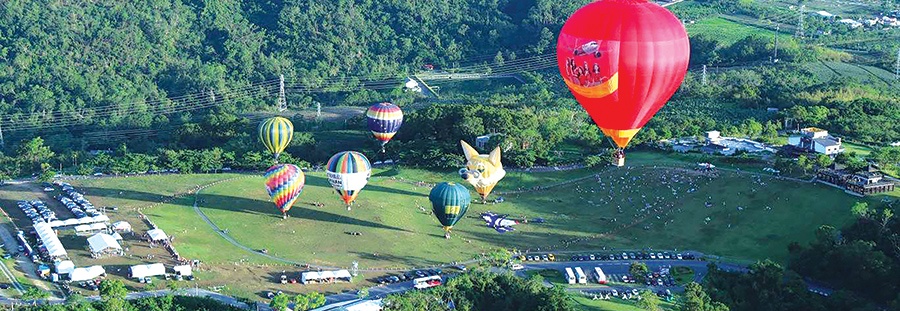 |
| Vietnamese tourism on the rise |
| Pham Sanh Chau - Vietnamese Ambassador to India
Large enterprises and corporations in India all have year-end bonus funds for employees or use this fund to organise trips for employees. In India, there are about 20 businesses specialising in organising wedding tours with about 100-1000 weddings per year. Vietnamese travel companies can approach and work with large Indian corporations or businesses on these wedding tours to welcome tourists to Vietnam. In recent times, the tourism needs of Indians were like a compressed spring, but now that India is open, visitors are no longer restricted. Because of that, Vietnam needs to promote tourism here. On the other hand, Indians often travel in large groups of a few dozen people, and whole families of three generations. They have a mentality of bargaining, and so tourism businesses should have incentives for them. Nguyen Thi Le Huong - Deputy general director, Vietravel
We have always believed that localities play a very important role in restarting tourism. Vietravel has connected with the Department of Tourism of Ho Chi Minh City, Khanh Hoa, and the central provinces to launch pilot tourism programmes. Then, we will prepare plans to welcome international tourists to Quang Ninh, Ninh Binh, and Hanoi, followed by 13 provinces in the Mekong Delta. We propose that the Ministry of Culture, Sports and Tourism have a plan to connect localities and travel agencies to send a message to the world that Vietnam is ready to welcome international tourists back. I also suggest that airlines soon plan to organise farm trips and press trips so that people can better understand the competitiveness and attractiveness of Vietnam’s tourism. Next, we need to have clear regulations on dealing with tourists suffering from COVID-19 when coming to Vietnam and consider increasing the visa exemption period for international visitors to 30 days. Currently, many countries have started to ease border restrictions and reopen for international tourists but there is an imbalance between tourists going abroad and tourists coming in. In my opinion, there is no need to test for COVID-19 for international flights if the country of destination does not require it. With the vaccination rate in Vietnam reaching nearly 100 per cent, the removal of testing will create fairness for the inbound and outbound markets, promoting the development of inbound tourism. Bobby Nguyen - CEO, Mekong Rustic Travel
Tourists are now likely to have the habit of travelling in small groups or families. Greener tourism, community-based tourism, and health-oriented and macrobiotics tourism will be most popular with tourists. Mekong Rustic has also been providing these products to foreign tourists since before the pandemic. Like many other businesses in the industry, we have also received positive signals from foreign guests when a number of delegations actively contacted to ask for tour information. However, we are not ready to welcome guests right away and will need 3-6 months of preparation before fully reopening. It is necessary to have a complete process to welcome guests including quality products and services. When participating in trips to take a survey in some localities, I see that many tourism businesses and restaurants are still operating in moderation when researching the market situation. They are still not ready both in terms of human resources and services to welcome guests, because reinvesting after a long period of closure will cost a lot of money, while the number of international visitors to Vietnam remains unstable. Many foreign delegations also shared that although they love Vietnam very much, they cannot come at this time because their countries still require quarantine when returning home, or do not want to have to wear masks when travelling. Dinh Toan Thang - Vietnamese Ambassador to France
The French are now gradually returning to the habit of travelling. In 2020, 90 per cent of French people prioritised travelling inside the country and Europe, but 43 per cent of French people are now ready to travel outside of Europe in 2022, of which 80 per cent said they want to travel to Asia. For Vietnam, France has always been a traditional market thanks to its historical and cultural connections. Vietnam is also a familiar destination for the French. French tourists appreciate the natural beauty, cultural values, cuisine, and people of Vietnam. Vietnam is also classified by France as a safe destination. Tourism businesses in France are looking for information to promote tourism between the two countries in the near future. Vietnam’s tourism industry needs to develop products suitable for the new needs of French tourists. Currently, the French give priority to sustainable tourism, paying attention to environmental issues, means of transportation and accommodation ensuring environmentally-friendly conditions. The travel trend of the French is slow, with longer days and fewer destinations. They prioritise types of tourism that ensure safety factors such as outdoor tourism, active tourism, rural tourism, places where there are few people, low risk of infection, clear health regulations, and good medical facilities. In addition, the flexible factors of postponement and cancellation of tours, and the application of technology in tourism activities are prioritised by 53 per cent of French tourists when choosing a destination. Nguyen Cong Hoan - CEO, Flamingo Redtours
With the inbound market, we have worked with European partners to build tourism products and define this market to enter Vietnam from September to April next year. Flamingo Redtours currently has bookings from September to December from British and mainland European tourists. For the Middle East and Indian markets, we have had information and discussions with partners to be able to serve tourists from these markets from May. However, when the government announced the reopening of all tourism activities from March 15, Flamingo Redtours immediately informed our partners so that they could consider bringing tourists to Vietnam sooner. With the outbound market, we have maintained all regular, two-way relationships with foreign partners. Flamingo Redtours has organised tours for tourists to the Middle East, such as Dubai. Besides, we still operate small tours combining a business trip with a vacation. Germany, the Netherlands, and some other European countries have not yet issued visas to visitors, so we cannot organise tours to these markets. Japan and China are still keeping their borders closed. We are updating information on the reopening policy and visa granting of countries every day, every hour. According to their policies, we will work with travel companies and partners to build products. Nguyen Quoc Dung - Vietnamese Ambassador to the US
American tourists rate Vietnam as a favourite destination, and a large number of Vietnamese in the US have a demand for Vietnam to visit relatives and make investments. We currently operate regular direct flights to the US, which is very convenient for Vietnam to attract American tourists. However, the US Centers for Disease Control currently places Vietnam as a high risk in terms of COVID-19 in its most updated travel warnings. One of the obstacles for Vietnam’s tourism has been the long time the industry was shut down altogether, compared to many other countries in the region. There are not many attractive new products to attract visitors when reopening. While Americans prefer family travel and experiences, they prefer to stay at homestays, book rooms online, use IT, and avoid direct contact with employees where possible. Juan Losada - General manager, Regent Phu Quoc
The tourism sector in Vietnam has worked hard to ensure businesses are kept open and the local economy remains stimulated. Domestic tourism within Vietnam has been popular during this time, with new opportunities to discover the local treasures and attractive destinations from within. The reopening of borders to international travel is a significant step toward reviving the global tourism business, and we look forward to celebrating the soon-to-launch Regent Phu Quoc in Q2, as a new definition of a luxury beachside resort in Vietnam and above all, an island paradise that elevates the hospitality experience through effortless luxury, world-class service and a calming environment. We are well-placed for recovery and new demand for travel. A silver lining of the pandemic is that it’s helped us find a deeper value in human connection and the simple pleasures in life. There is a pent-up demand for travel and new adventures that can be experienced more meaningfully. Phu Quoc is an island jewel off the southwest coast of Vietnam, home to a tropical forest declared a UNESCO World Biosphere Reserve, where travellers are spoiled with the promise of a great adventure – whether that’s exploring the island’s renowned pepper farms, bustling fish markets, undiscovered white sand beaches, or sparkling turquoise waters. Phu Quoc Island has grown in terms of luxury tourism in the past 10 years with an increased presence of luxury brands and experiences as part of its tourism offerings, and greater investment in infrastructure development on the Island. The emphasis on privacy and luxury has attained an even greater significance now, and the appeal of Phu Quoc as an island tucked away adds to its attraction as a tourist destination. Tran Nguyen - Sales director, Sun Group
In the new normal, the key point for tourism recovery is product innovation and quality improvement, especially the application of digital technology to enhance the visitor experience. Taking advantage of the past two years, Sun Group has invested in many items to bring better experiences for visitors. In fact, with the new projects of golf courses and theme parks in Phu Quoc, we were surprised to receive a record number of visitors in recent times. The percentage of Vietnamese people who have had three shots of COVID-19 vaccine is quite high, so we are confident in welcoming visitors safely. I believe international tourists will also feel safe when coming to Vietnam. However, when it comes to international reopening, it will take a few months to attract and deploy stimulus programmes in international markets, especially European markets. Sun Group also hopes the government will consider extending the visa exemption to 30 days, because tourists from countries that are being exempted from visas have a habit of travelling from 15-21 days. Tourists will lose the opportunity to experience and spend more in Vietnam under the current 15-day visa exemption duration. In addition, we should also consider expanding visa-free countries to markets such as Australia, New Zealand, and Canada. With good preparation and easing of welcoming conditions, the tourism industry can catch the peak tourist season of Northeast Asian tourists in April-May and European and Australian visitors starting from August. |
What the stars mean:
★ Poor ★ ★ Promising ★★★ Good ★★★★ Very good ★★★★★ Exceptional
Related Contents
Latest News
More News
- Vibrant Vietnamese cuisine fit for global tastes (June 09, 2025 | 10:42)
- Vietnam can be global hot spot in 2025 (January 29, 2025 | 00:38)
- Promoting tourism and hospitality with sustainability (January 28, 2025 | 09:00)
- Vietnam centres on eco-luxury tourism and hospitality (January 28, 2025 | 02:06)
- Growth prospects for Vietnam’s event tourism in 2025 (January 28, 2025 | 01:18)
- Core values drive success at Marriott (January 24, 2025 | 16:00)
- Hoteliers to prioritise eco-luxury (January 04, 2025 | 09:00)
- Vietnam upscale tourism on the rise for 2025 (December 30, 2024 | 12:03)
- Addressing concerns can shape green hospitality (December 04, 2024 | 10:24)
- Vietnam’s sports economy to lead a new era of development (November 06, 2024 | 16:31)

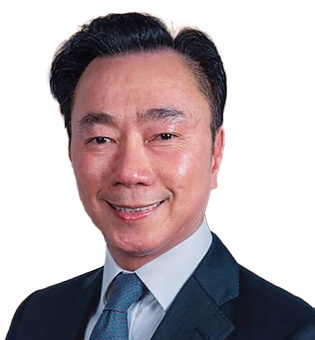
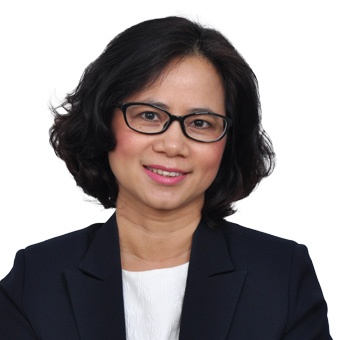
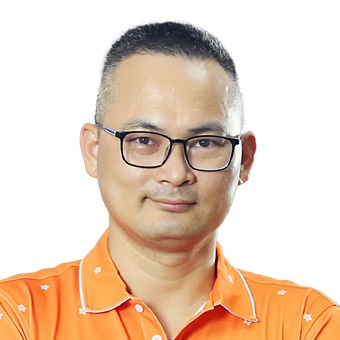
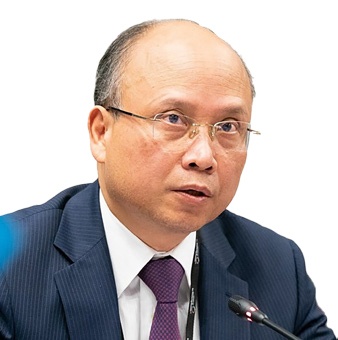
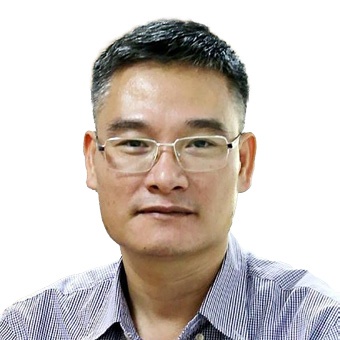
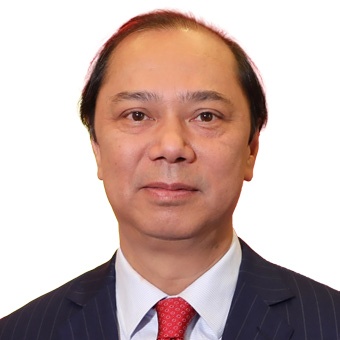

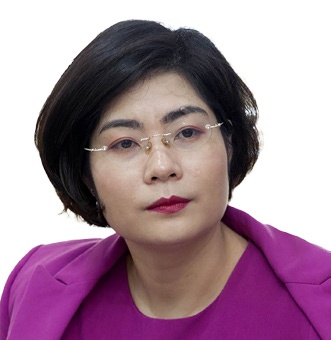
 Tag:
Tag:




















 Mobile Version
Mobile Version